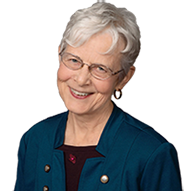The last issue of Clear, Effective Communications listed a few of my “textbooks.” This issue offers reference works: sites I visit frequently to look something up.
Prefer print? So do I. But most reference books are out of date before they leave the printer.
Dictionary: Merriam-Webster
Pick one dictionary and use it consistently. I use Merriam-Webster for a trivial reason: It has the best claim to the use of the name of America’s first lexicographer. You could do as well with Dictionary.com, which is based on the Random House Unabridged.
Thesaurus: Visual Thesaurus
Most people shouldn’t use a thesaurus. If you are one of those who should (that is, you have a strong vocabulary), you might use Thesaurus.com. But Visual Thesaurus is way more fun. It’s also a better learning tool: It not only maps the relationships among the words but also defines each word with examples. Visual Thesaurus is a subscription service, but you can try it for free.
Citations and references: Purdue OWL
Most of my editing is in education, so I use APA (American Psychological Association) style. I look up citation formats using the Online Writing Lab at Purdue University, which also offers the basics of several other style guides.
If you are writing for publication, whether in print or online, ask your publisher what style guide to use.
Encyclopedia: Google
When I have a factual question, I do the same thing you do: I google it. Then I check carefully that the sources that pop up are reliable. If the question is at all obscure or debatable, I correlate more than one source.
Several true encyclopedias are available online, starting with the queen of them all, Britannica. Use RefSeek to find respected encyclopedias and other reference works in specific fields.
Fill in the blank
Is there a reference category you’re dying to know about? Did I miss your favorite resource? Comment here!



I’m old enough to still feel guilty about it, but my go-to reference now is Google. The last time I remember actually going to a library to look something up was in 2000. I had been elected an officer of a Board and needed to consult Robert’s Rules of Order. And just now I used Google to check on that apostrophe.
Great story! I bet Robert’s is online now, too. I go to the library to work sometimes, but never to look something up.